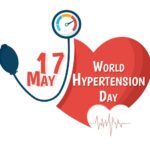India
healthysoch.com
New Delhi, August 14, 2019 :
Compared to an isolated BP reading taken in the office, BP should be monitored over 24 hours out-of-office to best predict the risk of heart disease, suggests a new study conducted in 12 countries published August 6, 2019 in JAMA.
The study included more than 11,000 individuals from 12 countries in Europe, East Asia and Latin America and followed them for 14 years from May 1988 to May 2010. BP was also recorded over a 24-hour period using automated portable BP monitors in an office setting, with repeated blood pressure measurements recorded during the day, at night during sleep and over 24 hours.
The results showed the higher 24-hour and nighttime blood pressure measurements were significantly associated with greater risks of death and a composite CV outcome, even after adjusting for other office-based or ambulatory blood pressure measurements.
Hypertension is one of the leading causes of cardiovascular diseases and if kept under control, the burden of associated health conditions can be reduced. The BP varies throughout the day. An accurate BP measurement can go a long way in preventing heart disease and stroke eventually as well.
Ambulatory BP monitoring is usually recommended to rule out white coat hypertension and to diagnose masked hypertension or undetected high BP in otherwise healthy patients, which clinic BP measurement can miss.
Monitoring BP over 24 hours enables the prevention of cardiovascular disease by allowing timely treatment, which makes ABPM a cost-effective intervention.







